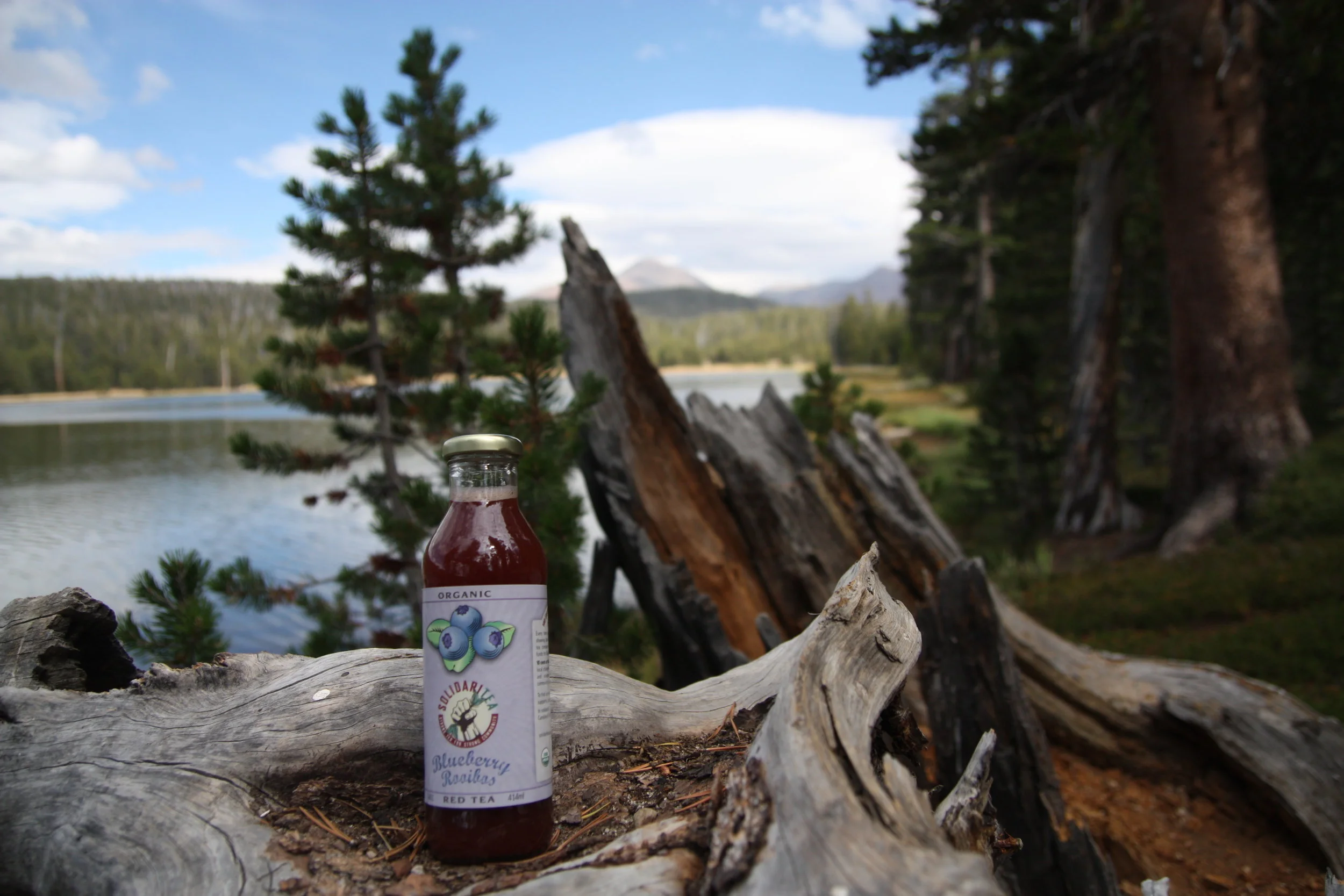We source as many of our ingredients and materials as locally as possible, and then US-made / US-grown when available. For some of our ingredients we’re limited by climate: rooibos, for example, only grows in South Africa, and tea farms in general prefer the geography, weather, and happy soil microbes of Asia, South-East Asia, and Africa.
So we did the next best thing to source our teas: we partnered with Equal Exchange, a cooperative who exclusively works with democratically organized, worker-owned farms. Both our Ceylon (used in our Black Rose and our Cinnamon Peach teas) and our Rooibos are fair-trade, organic, and grown by the Small Organic Farmers’ Association (SOFA) and Wupperthal Original Rooibos Co-op, respectively.
Wupperthal farmers harvesting fresh rooibos during the summer months.
Our teas are brewed and flash-pasteurized locally in Santa Cruz County, at a family-owned, solar-powered, fair trade facility. All tea leaves and botanicals are composted at nearby farms, post-production, to help nourish the soil and continue the cycle of life.
-- Our teas are certified organic with Oregon Tilth, and we are proud to say we are now officially a Benefit Corporation --
Biodiversity as seen from a SOFA tea farm.
We bottle our teas in glass because glass can be infinitely recycled, never “down-cycled” like plastic (i.e. must be broken down to its component elements to be re-made into something usable). Glass is also naturally BPA-free, and it will never change or affect the taste of our teas.
We are deeply grateful to this spinning rock we call home, and to each person and each plant who make our teas possible. In a grocery category dominated by multi-national corporations, we are proud to keep growing slowly, sustainability, and within the needs / healthy limits of the farms, small businesses, and wonderful folks we work with.


